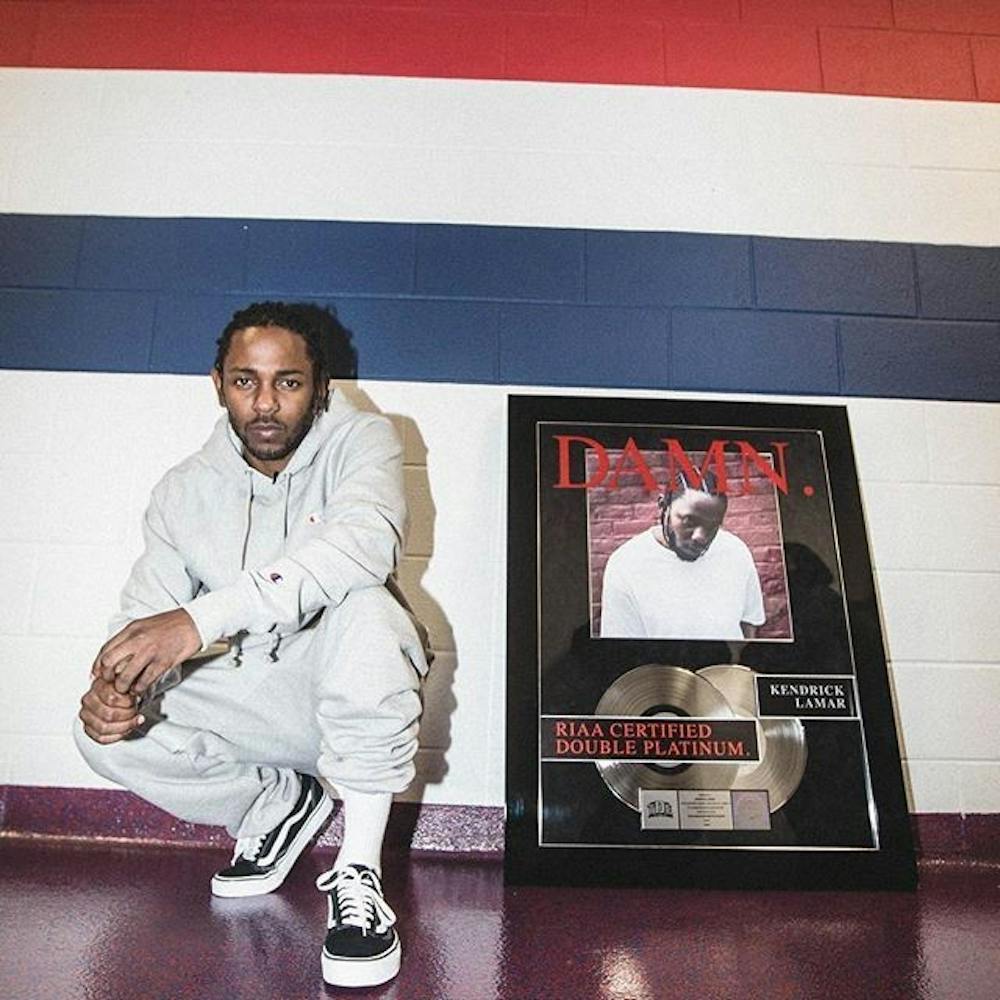This year, the Grammy nominees for Album of the Year include Jay-Z's "4:44," Kendrick Lamar's "DAMN." and Childish Gambino's "'Awaken, My Love!'". The fact that artists of color make up most of the nominees for album of the year is incredible. This is really important, considering the racial controversies that have occurred throughout 2017.
With all of the Trump scandals — which include him failing to condemn white supremacists after the riots in Charlottesville, his retweets of anti-Muslim videos and the incident of him referring to Elizabeth Warren as "Pocahontas" — show that we're living in a country with a racially insensitive leader. So when the Grammy nominations for best album include a majority of people of color, it's a big deal.
Throughout this difficult year filled with controversy, hip-hop artists used their positions of power to express their opinions through their music in creative ways.
And the music is powerful.
The intro track to "DAMN." by Kendrick Lamar is the song "BLOOD." The song ends with an audio clip of Eric Bolling and Kimberly Guilfoyle on Fox News condemning Lamar after his performance at the Grammy Awards.
Geraldo Rivera in the Fox News video goes onto say, “(That performance is) not helpful at all. This is why I say hip hop has done more damage to young African-Americans than racism in recent years.”
I find it unbelievable that we live in a world where people think the right to express yourself and your opinions through music is more harmful to minorities than racism itself. This thought is clearly driven by white privilege and racism.
Earlier this year, Eminem directly attacked Trump's prejudice and bigotry in a freestyle rap video. This is way different than the 17 rappers who dropped anti-Trump tracks before him because Eminem is white. The Trump voters hear him and his message and Eminem knows this. He uses his white privilege to call Trump out on his racism.
Lyrics like, "Support for the Klansmen/tiki torches in hand for the soldier that's black/and comes home from Iraq/and is still told to go back to Africa," show how the rapper really feels.
He even makes a point in the freestyle to say that he's "drawing in the sand a line" between him and any of his fans that are Trump supporters. This further shows how our current political climate has caused artists to speak out, which has changed modern hip-hop for the better.
The second track on Jay-Z's album "4:44" is "The Story of O.J.", and it dives into hard-hitting racial themes. It features Jay-Z casually rapping over Nina Simone's 1966 song "Four Women," a song that discusses racism encountered by four black women in America.
The music video for "The Story of O.J." is a black and white cartoon featuring the main character "Jaybo," a spin on the character "Sambo" from "The Story of Little Black Sambo." Sambo is well-known for being a racist portrayal of black people in America.
In the video, Jaybo, a character with dark skin and exaggerated large lips, is made to make viewers feel uncomfortable. The character is seen picking cotton, eating watermelon and countless other cringe-worthy things that portray severe racist imagery.
At one point, the character is seen holding twins, directly tying Jaybo to Jay-Z himself, regarding the recent birth of his and Beyonce's twins. The point of the blatant racism in the video and the purpose of the song is to show that no matter what black people do, they're seen in the same negative light by society because of the color of their skin.
Jay-Z's powerful imagery won America over. "4:44" and "DAMN." have underlying messages of social justice that are important in this day and age. America in 2017 has subjugated these artists to many bouts of racism and oppression, so they responded with powerful messages in their art that's revolutionized the world of hip-hop.

